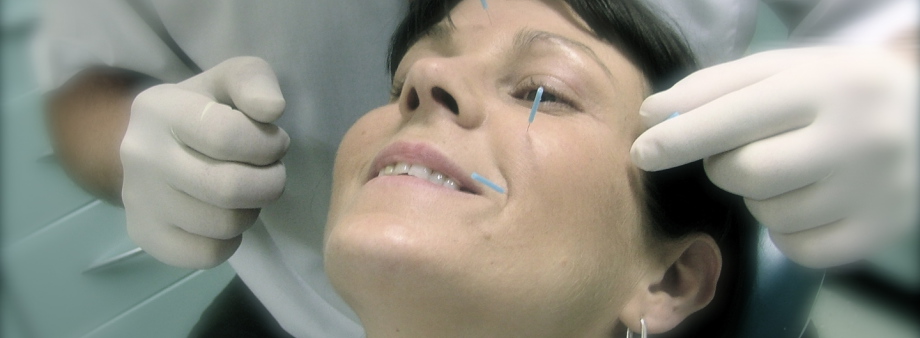
How can acupuncture help?
Acupuncture has a very wide range of potential applications in medicine, but this is somewhat more limited in dentistry. However the results can often be startling, and give relief of symptoms very quickly.
The primary aim of acupuncture in dentistry is increasingly about improving the quality of outcomes when linked with conventional routine dentistry. Acupuncture is not a replacement for conventional treatments, and is definitely not a replacement for local anaesthetic injections. Whilst it appears that surgical anaesthesia can be achieved in some sites in the body, this is exceptionally difficult to achieve in the head and neck, probably due to the complex nerve supply.
The typical conditions that may be helped by acupuncture are:
- TMJ (jaw joint) problems
- Facial pain
- Muscle spasm in the head and neck
- Stress headaches & Migraine
- Rhinitis & sinusitis
- Gagging
- Dry mouth problems
- Post-operative pain
- Dental anxiety
The control of gagging during dental treatment is very important to improve the care that a patient can receive. Gagging can sometimes make it almost impossible to fully examine the mouth, or take X-rays. Acupuncture can quite easily control gagging (about 80% reliable) using needles around the mouth, or ears. Patients can then receive treatment comforatbly, and with much less stress - to all parties!
Research shows that acupuncture can work just as well as conventional treaments for many medical conditions. However - because there are few side effects from acupuncture - for many patients this is a better option. An example is the treatment of tennis elbow: acupuncture can give quick and effective pain relief, and improve function, but over the course of 6 months conventional treatments such as physiotherapy are generally as good (it just takes longer to get there). However the use of steroid injections to control symptoms can lead to tissue damage, and deformity of the muscles around the elbow. Acupuncture may help avoid this undesirable side effect.
Pooled data from many similar studies is increasingly showing this trend, especially when the quality of life is studied.
